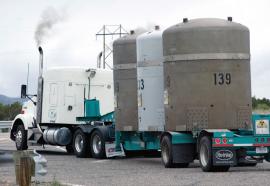Life After Yucca
Reviving hope for spent-fuel storage.
With Yucca Mountain declared dead, America’s nuclear power industry needs new solutions for managing spent fuel. Although the task is complicated, examples of siting success provide hope that a collaborative approach can close the nuclear fuel cycle.










